Best books for teaching children kindness
Books are a fantastic tool for teaching children kindness because they help children see the world through someone else’s eyes. They also provide clear illustrations for younger children on what kindness looks like (and what isn’t kind).
Raising kind kids is all about modelling, and having lots of opportunities to practise. Reading books together extends children’s awareness and gives them access to experiences that may not have in the real world. Here is my pick of the best books for teaching children kindness (ages 1-11yrs).
*This post contains affiliate links
 Plant a Kiss
Plant a Kiss
Plant A Kiss (by Amy Krouse Rosenthal) is a beautiful board book for little ones. As the title implies, it is all about how small acts of love and kindness can grow and bloom into something beautiful. (1-3yrs)
 Be Kind
Be Kind
Perfect for pre-schoolers and children who have just started school, Be Kind (by Pat Zietlow Miller) is all about being kind in group dynamics and standing up for someone who needs support and compassion. (3-5yrs)
Ned and the Great Garden Hamster Race
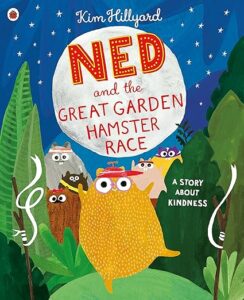
 Kind
Kind
Kind (by Alison Green) explores all the different ways we can be kind to each other, and how small gestures can have a really big impact. With contributions from lots of different amazing illustrators. (3-6yrs)
Once Upon A Dragon’s Fire
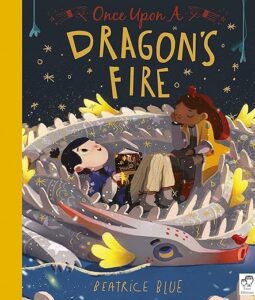
 The Smile Shop
The Smile Shop
The Smile Shop (by Satoshi Kitamura) is such a sweet book, with beautifully detailed illustrations. Ultimately, it’s a simple story about how kindness can triumph over disappointment and other negative emotions and situations – but told in a way that young children can really identify with! (4-7yrs)
 The Story Book Knight
The Story Book Knight
Another dragon book! This one has brilliant rhymes and more complex vocabulary that make it wonderful for reading out loud. The Story Book Knight (by Helen Docherty) subtly undermines the traditional knight vs. dragon tale, replacing animosity with the power of empathy and storytelling. The UK version is titled The Knight Who Wouldn’t Fight (4-8yrs)
 The Sound of Kindness
The Sound of Kindness
The Sound of Kindness by Amy Ludwig VanDerwater is a simple sweet book that focuses on the many ways we show kindness through our words. It’s not a story, as such, and there isn’t much text, but it’s a great book for starting conversations with your child and discussing ways in which they have been kind or could be kind. (4-8yrs)
 Wonder
Wonder
When it comes to older children, Wonder (by Palacio R.J.) hits the spot on all fronts. It promotes empathy (standing in someone else’s shoes and imagining what it is like to be them), it movingly illustrates the impacts of kindness and unkindness, and it shows children what kindness looks like in practice. A must read. (9-11yrs)
For more ideas on teaching children kindness, take a look at:
- Books for helping children manage friendship problems
- Children’s books about sibling rivalry
- Best books to teach children social skills (2-7yrs)
- Children’s books that celebrate diversity
- Children’s books about financial hardship
- Why diverse and inclusive toys are important
*This post contains affiliate links which means that if you click through from this post and buy a book, the Positive Parenting Project will receive a small commission. There is no additional charge to you. This helps us keep providing free content. For more info, see Disclosure Notice.

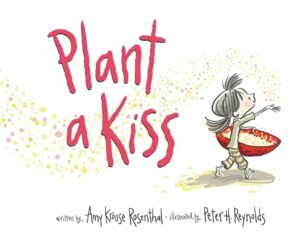 Plant a Kiss
Plant a Kiss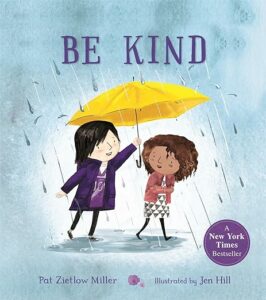 Be Kind
Be Kind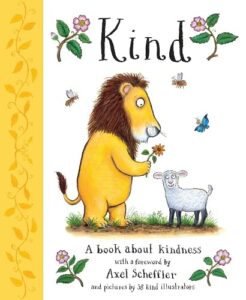 Kind
Kind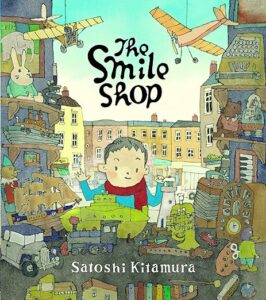 The Smile Shop
The Smile Shop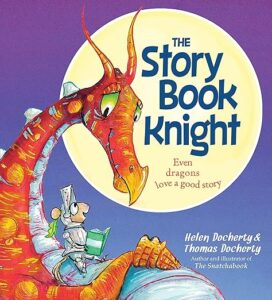 The Story Book Knight
The Story Book Knight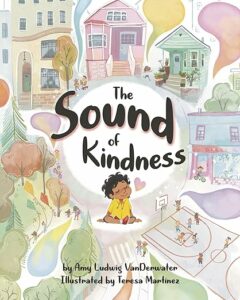
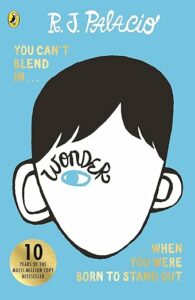 Wonder
Wonder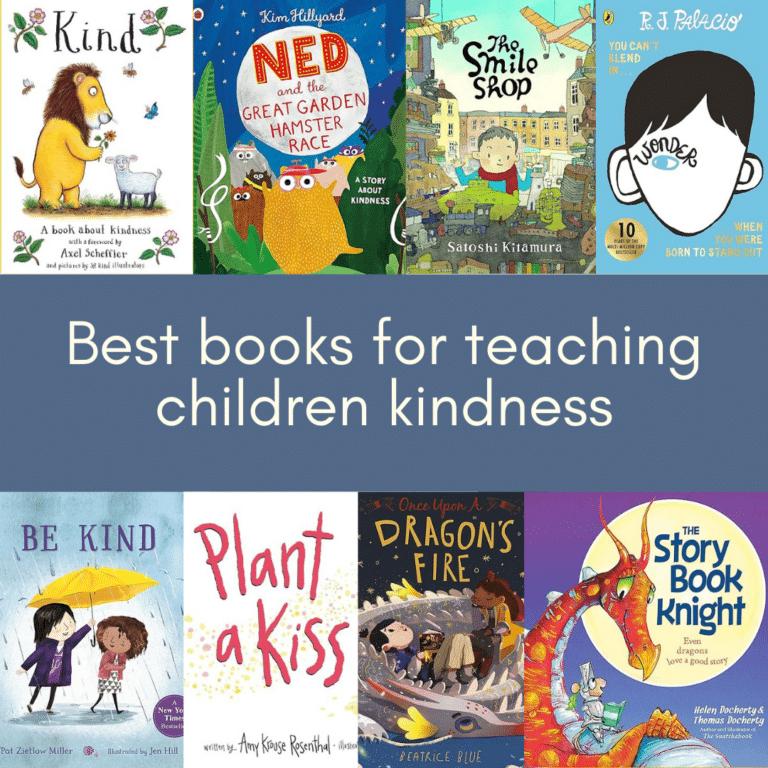

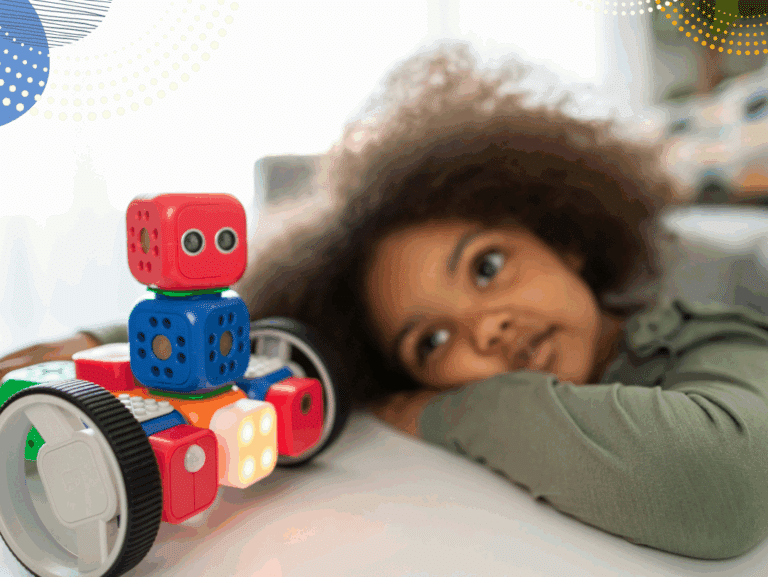

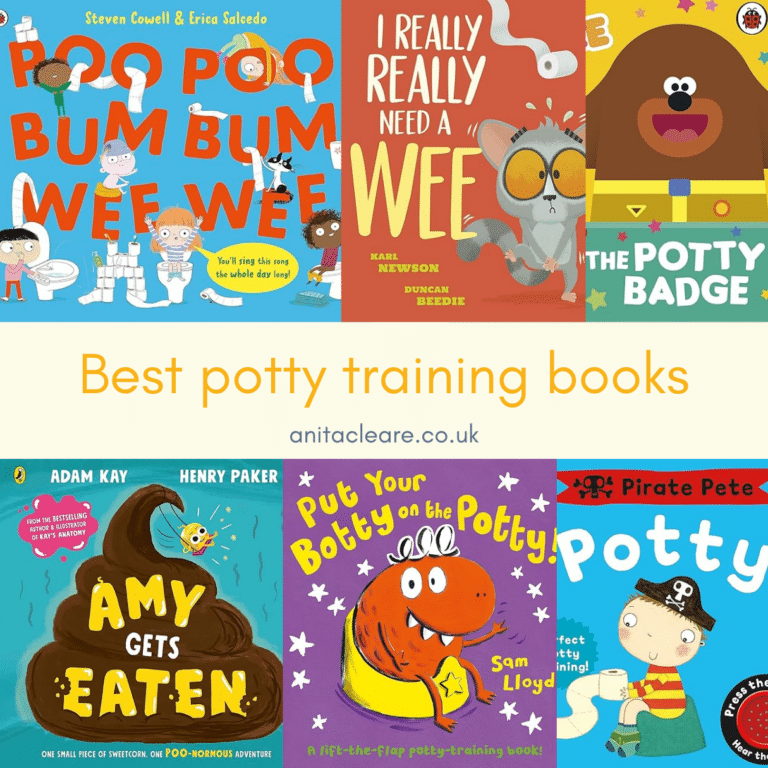
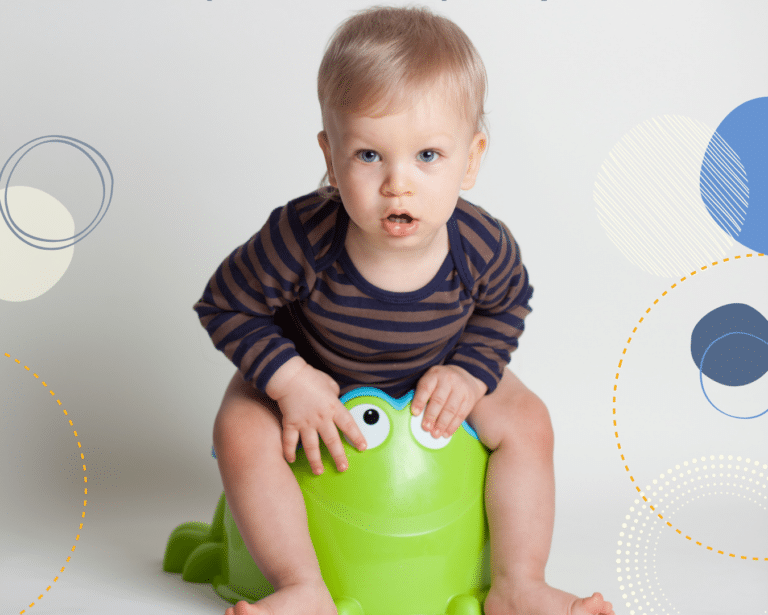
Leave a Reply